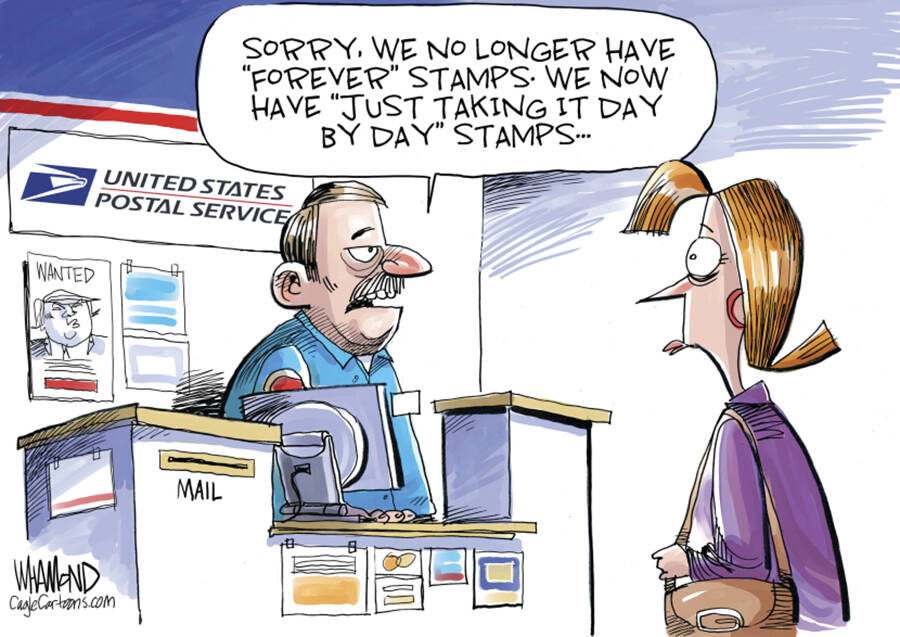The U.S. Postal Service doesn’t say anything about COVID-19 or lockdowns in its motto. Nonetheless, over the last two years, America’s mail carriers stayed on the job and kept the nation going. It’s important to keep that in mind as Congress begins once again to wrestle with the thorny issue of postal reform.
To give credit where credit is due, U.S. Postmaster General Louis DeJoy has proven himself to be an exceptional administrator. Throughout the lockdown, the Postal Service continued to deliver mail and packages to the entire country, six days a week. Over the most-recent holiday season, despite the pandemic, it delivered more than 13.2 billion letters, cards and packages, within three days on average. That’s a considerable increase over last year, made possible in no small part because the reforms enacted under DeJoy’s 10-year operational improvements and strategic investment plan boosted daily processing capacity by 13 million packages.
The Postal Service’s universal service obligation has meant those in rural states have the same access and service as those in urban areas. This has made it a vital lifeline throughout America during the lockdowns, providing access to needed household goods and critical medicines.
DeJoy’s running the Postal Service like a business, not a federal agency, which is what some of its congressional allies wish it still were. People forget it’s postage and package delivery services that fund its day-to-day operations, not tax dollars. Yet were it to go bankrupt someday, it would be the taxpayers who’d have to fund the bailout.
Some free marketeers would rather have every aspect of mail and package delivery managed by the private sector. That might make sense someday, but that would require it also have a universal service requirement imposed upon it – if the level of service were to remain the same. Right now, none of that is on the table. The only thing under consideration is how to build on DeJoy’s successful reforms so the Postal Service can continue to do what we all expect it to.
The bill soon to come up in Congress goes in the right direction, especially since its rural delivery provision, known as Section 202, ensures that mail and packages will continue to be delivered together, efficiently, to every address in the continental United States at least six days a week. That is, as DeJoy has said, “a central aspect of our universal service mission.”
The postal reform bill has bipartisan support. But no bill is perfect. There’s more that could be done to make the Postal Service more efficient. There’s always more but there’s no time to waste. The Postal Service has important things to do – like making sure the 1 billion million at-home COVID test kits President Biden wants it to deliver get where they are supposed to go.
The politicians debating reform should focus on that rather than on using it as a political football by claiming things like, as the Democratic Senatorial Campaign Committee recently did in a fundraising email: “For years now, Americans have been dealing with the devastating impacts of Donald Trump’s postmaster general. Louis DeJoy’s delays, cutbacks, and sabotage were a key piece of Trump and the GOP’s direct assault on mail-in voting — and they’re only getting worse.”
That’s a dishonest assessment of DeJoy’s performance and an unfair shot at the hundreds of thousands of diligent, resolute people who bring the mail and packages to your door “in rain and sleet and snow and dark of night.”
By voting for the coming postal reform package, Congress has the chance to keep what’s working without adding to the costs. Keeping the user-financed structure preserves the long-term viability of the Postal Service while making the chance of a taxpayer-funded bailout much less likely. The bill is worth supporting as a complement to the reforms already underway by DeJoy and the Postal Service itself.
Peter Roff is affiliated with several Washington-D.C.-based public policy organizations. Contact Roff at RoffColumns@gmail.com



